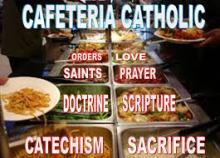In reflecting on this week’s Gospel, a guy in my Gospel reflection group was recalling a podcast he recently heard on parenting. The speaker said that parents are HYPER-focused on the kids - their sports, their studies, their schools, their schedules, their activities, their friends, etc.. Attention on the spouse seems to get lost. (See my Spiritual Reflection on the “Living in Love” retreat). The suggestion was made to bring the children “into the spousal relationship of the couple” during conversations around the dinner table. How husbands and wives do this presents an interesting challenge on how to bring those who are on the “outside,” into the ”inner circle.” The talk will be so much deeper that simply “How was your day at school?”
There were two passages in today’s Scripture readings that caught my attention:
He is the stone rejected by you, the builders, which has become the cornerstone. (John 10:11-18, quoting Psalm 118:22)
And …
Jesus said: “I am the good shepherd. I know mine and mine know me, (BUT) I have other sheep that do not belong to this fold. These also I must lead, and they will hear my voice, and there will be one flock, one shepherd.
Father Ron Rolheiser offers his comments on these two readings:
Today our faith families are shrinking and instead of us weeping emphatically about this loss of wholeness we are more prone to be secretly gleeful about it: Good riddance: they weren’t real Christians anyway! They were Cafeteria-Catholics, picking and choosing which parts of the Gospel they like and turning a meaty Catholicism into Catholic-Light.
Such a judgment, however sincere and well intentioned, needs to operate under two huge caution flags:
First, such a judgment leaves the person making it in a rather vulnerable position. Who is a true, fully practicing Catholic? Only Jesus and Mary. Everyone else, without a single exception, falls short. We are ALL Cafeteria-Catholics in some capacity. We all fall short; all have shortcomings. In some way we all live the Gospel somewhat selectively. 
To cite a salient example: Many of us bear down more on church-going and private morality, to the neglect of the non-negotiable Gospel demand regarding justice; others simply reverse this. Who’s closer to Jesus? Who’s more of a Cafeteria-Catholic?
The second caution flag is this: The God that Jesus reveals to us is a God of infinite abundance. There is no scarcity, no stinginess, no sparing of mercy. The parable of the Sower makes clear, that God scatters his seed indiscriminately on every kind of soil—bad soil, mediocre soil, good soil, excellent soil.
Why? Because God’s love and mercy are limitlessness. God never worries about someone receiving cheap, undeserved grace. Like the father of the prodigal son as well as his older brother, God embraces both the missteps of our spiritual immaturity as well as the bitterness and resentment within our religious maturity. Good religion needs to honor that.
Fr. Ron closes by saying:
All of us stand in need of God’s forgiveness and all of us stand in need of the patience of our ecclesial communities.
So what does this look like in our experience? As human beings we have a hard time being faithful about loving those “outside the circle”. For me as a priest this is a challenge when people, who have been away from the church for a long time, come to “order a wedding” (or Baptism or funeral). Often they make demands that are really outside of the teachings of the church or liturgically inappropriate. For years I thought that if I “caved into” their wishes, I was selling short the Church and our liturgical tradition. Pope Francis, however, seems to have given the Church (and me) a kind of permission to clearly know the difference between the “small stuff” and the “big, important stuff,” focus on the small stuff and thus meet people where they are with a more pastoral approach not feeling that you are short-changing the Church.
The whole Easter mystery reveals to us how utterly faithful God is in loving us. (See Joyce Ann Zimmerman’s comments on this) We can be faithful in our own loving because God is faithful in loving all of us “Cafeteria-Catholics.”
I close with a prayer from “Mid-Day Prayer, Thursday of the 3rd Week Easter:
Almighty, ever-living God, make our hearts more open to your love in these days of Eastertide, when you make known to us the depth of that love to us and have rescued us from the darkness of error. Make us adhere more firmly to the teachings of your truth and offer that love to others.
Audio version of the Homily is here:
